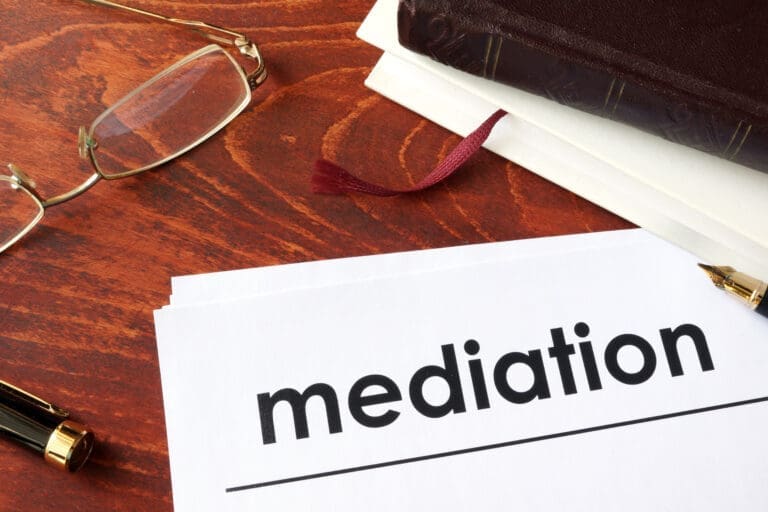
Comprender New York DUI laws and penalties is crucial for attorneys, defendants, and the public alike. The Empire State is renowned for its tough stance on impaired driving, reflecting a broader commitment to public safety and personal responsibility. The legal framework surrounding DUI (Driving Under the Influence) and DWI (Driving While Intoxicated) in New York is intricate, with a range of offenses, escalating penalties, and procedural nuances that demand careful attention. For those navigating the legal system-whether as counsel, defendant, or policymaker-clarity on these issues is essential.
At its core, New York law differentiates between several types of alcohol- and drug-related driving offenses. The most common is DWI, which applies when a driver operates a vehicle with a blood alcohol concentration (BAC) of 0.08% or higher, or when there is other compelling evidence of intoxication. For commercial drivers, the threshold is even lower, set at 0.04%. The state also recognizes Aggravated DWI, triggered by a BAC of 0.18% or higher, and DWAI (Driving While Ability Impaired), which applies to those with a BAC between 0.05% and 0.07% or when impairment is evident even at lower levels. DWAI can also be charged when impairment is caused by drugs or a combination of drugs and alcohol. For drivers under 21, the Zero Tolerance Law imposes strict penalties for BACs as low as 0.02%.
The rationale behind these gradations is straightforward: to deter impaired driving and safeguard the public. The law recognizes that even minimal impairment can compromise judgment, reaction time, and coordination. New York’s approach is uncompromising, with penalties designed to be both punitive and preventative. The legal process begins the moment a driver is stopped on suspicion of impairment. Law enforcement officers may administer field sobriety tests and request chemical testing-breath, blood, or urine-to determine BAC. Refusal to submit to these tests invokes the state’s implied consent law, resulting in automatic civil penalties, including license revocation for at least a year and a $500 fine, even if the underlying Cargo por DUI is not proven in court.
The penalties for a first-time DWI conviction in New York are substantial. Offenders face fines ranging from $500 to $1,000, up to one year in jail, and a mandatory license revocation for at least six months. The court may also impose probation, community service, and require participation in a Drinking Driver Program. For those convicted of Aggravated DWI, the consequences are even more severe, with fines up to $2,500, a minimum one-year license revocation, and the possibility of a year in jail. Repeat offenders encounter escalating penalties. A second DWI within ten years is a felony, punishable by fines of $1,000 to $5,000, up to four years in prison, and a license revocation of at least one year. A third conviction within ten years increases the fine to $2,000-$10,000, with up to seven years in prison and a minimum 1.5-year license revocation.
The law also addresses DWAI by alcohol, which is classified as a traffic infraction rather than a misdemeanor or felony. Nevertheless, the penalties are significant: a first offense carries a fine of $300 to $500, up to 15 days in jail, and a 90-day license suspension. Subsequent DWAI convictions within five years result in higher fines, longer jail terms, and longer license suspensions or revocations. For DWAI involving drugs or a combination of drugs and alcohol, the penalties mirror those for alcohol-related offenses, underscoring the state’s zero-tolerance approach to impaired driving in all its forms.
New York’s Zero Tolerance Law is particularly strict for drivers under 21. A BAC of just 0.02% to 0.07% can result in a charge, with penalties including a six-month license suspension, a $125 civil penalty, and a $100 fee to terminate the suspension. Repeat violations can lead to longer suspensions and the possibility of revocation until the driver turns 21.
The consequences of a DUI or DWI conviction extend far beyond fines and jail time. Offenders face mandatory installation of ignition interlock devices in their vehicles, especially for aggravated or repeat offenses. These devices require the driver to provide a breath sample before the vehicle will start, serving as a constant reminder of the consequences of impaired driving. Insurance premiums often skyrocket after a conviction, and some insurers may refuse coverage altogether. Employment prospects can be affected, particularly for those in professions requiring a clean driving record or security clearance.
A DWI or DUI conviction also brings collateral consequences in the legal system. For instance, a conviction can be used as an aggravating factor in future criminal cases, leading to harsher penalties. It may also impact family law matters, such as custody disputes, where a history of impaired driving can be used to challenge a parent’s fitness. In civil litigation, a DUI conviction can be introduced as evidence of negligence in personal injury lawsuits arising from traffic accidents. These ripple effects highlight the importance of understanding the full scope of New York DUI laws and penalties.
Procedurally, New York law provides for license suspension pending prosecution when a driver is charged with DWI and has a BAC of 0.08% or higher at the time of arrest. In some cases, defendants may be eligible for a hardship license, allowing them to drive to work, school, or medical appointments. However, these exceptions are tightly regulated and require judicial approval. The court may also order participation in educational or treatment programs as a condition of probation or reinstatement of driving privileges.
The state’s implied consent law is a cornerstone of DUI enforcement. By operating a vehicle in New York, drivers are deemed to have consented to chemical testing if lawfully arrested for suspected impairment. Refusal to submit to testing results in automatic administrative penalties, including a one-year license revocation and a $500 civil penalty for a first offense. Repeat refusals within five years carry even stiffer penalties, including an 18-month revocation and a $750 fine. These administrative sanctions are separate from any criminal penalties arising from a DUI conviction, meaning a driver can face both sets of consequences simultaneously.
New York’s approach to impaired driving is informed by a commitment to deterrence and public safety. The state’s roads are among the busiest in the nation, and the risks posed by impaired drivers are well documented. Lawmakers have responded with a robust legal framework that emphasizes swift and certain punishment, coupled with opportunities for rehabilitation. The goal is not merely to punish offenders but to reduce recidivism and protect the public from the devastating consequences of impaired driving.
Defense strategies in DUI cases are varied and fact-specific. Attorneys may challenge the legality of the traffic stop, the administration and accuracy of chemical tests, or the sufficiency of the evidence supporting impairment. In some cases, plea bargaining may be possible, resulting in reduced charges or alternative sentencing options such as probation or community service. However, prosecutors in New York are often reluctant to negotiate in DUI cases, reflecting the state’s tough-on-crime philosophy and the political risks associated with perceived leniency.
En sentencia landscape for DUI offenses in New York is shaped by both statutory mandates and judicial discretion. Judges are required to impose minimum penalties for certain offenses but retain the authority to tailor sentences based on the facts of each case. Aggravating factors-such as high BAC, repeat offenses, accidents causing injury or death, or driving with a minor in the vehicle-can result in enhanced penalties, including longer jail terms and higher fines. Conversely, mitigating factors such as a clean driving record, demonstrated remorse, or successful completion of treatment programs may influence the court’s sentencing decisions.
En ignition interlock device requirement is a hallmark of New York’s DUI sentencing. For most DWI convictions, especially aggravated or repeat offenses, the court will order installation of the device for at least six months. The device records data on every attempt to start the vehicle, and violations-such as attempts to circumvent the system-can result in additional penalties, including jail time and extended license revocation.
Repeat DUI offenses carry particularly harsh consequences in New York. A second DWI within ten years is a felony, with mandatory jail time, higher fines, and longer license revocation periods. A third offense within ten years is a Class D felony, punishable by up to seven years in prison and fines up to $10,000. These escalating penalties reflect the state’s view that repeat offenders pose a heightened risk to public safety and require stronger deterrence.
For drivers charged with DUI or DWI, the legal process can be daunting. From the initial arrest and arraignment to pretrial motions, plea negotiations, and trial, each stage presents unique challenges and opportunities. Defense attorneys play a critical role in protecting their clients’ rights, challenging the prosecution’s evidence, and advocating for fair treatment under the law. Familiarity with the nuances of New York DUI laws and penalties is essential for effective representation.
En administrative and criminal penalties for DUI are only part of the picture. New York also imposes a range of collateral consequences, including mandatory participation in substance abuse assessment and treatment programs, community service requirements, and the possibility of vehicle forfeiture in certain cases. The state’s DMV maintains a point system, and DUI convictions result in significant point accumulation, leading to higher insurance premiums and potential license suspension for accumulating too many points.
En zero tolerance law for underage drivers is a reflection of New York’s commitment to preventing impaired driving before it starts. By imposing strict penalties for even minimal alcohol consumption by drivers under 21, the state aims to deter risky behavior and promote safe driving habits among young people. The law is enforced through random checkpoints, targeted patrols, and educational campaigns in schools and communities.
From a policy perspective, New York’s approach to DUI enforcement is rooted in principles of deterrence, accountability, and personal responsibility. The state’s laws are designed to send a clear message: impaired driving will not be tolerated, and offenders will face swift and certain consequences. This philosophy aligns with a center-right perspective that emphasizes individual accountability, the rule of law, and the protection of public safety.
Recent trends in DUI enforcement in New York reflect broader national developments. The proliferation of ride-sharing services, increased public awareness of the dangers of impaired driving, and advances in technology-such as improved breathalyzer devices and roadside drug testing-have contributed to declining rates of DUI arrests and fatalities. However, challenges remain, including the rise of drug-impaired driving, the opioid crisis, and the ongoing need for public education and prevention efforts.
The legal landscape is further complicated by the interplay between state and federal law. While DUI is primarily a matter of state law, federal regulations may apply in certain contexts, such as commercial driving or cases involving federal property. Attorneys practicing in this area must be attuned to these nuances and prepared to navigate the complexities of overlapping jurisdictions.
En plea bargaining process in New York DUI cases is subject to strict limitations. Prosecutors are generally prohibited from reducing DWI charges to non-alcohol-related offenses, except in cases where the evidence is insufficient to support the original charge. This policy reflects the state’s commitment to maintaining the integrity of its DUI enforcement efforts and deterring would-be offenders through the threat of certain punishment.
For those facing DUI charges, the importance of experienced legal representation cannot be overstated. The consequences of a conviction are far-reaching, affecting not only one’s freedom and driving privileges but also employment, insurance, and personal reputation. Attorneys must be prepared to mount a vigorous defense, challenge the prosecution’s case, and advocate for alternatives to incarceration where appropriate.
Educational and rehabilitative programs play a central role in New York’s approach to DUI sentencing. Courts routinely order participation in substance abuse assessment and treatment as a condition of probation or reinstatement of driving privileges. These programs are designed to address the underlying causes of impaired driving and reduce the risk of recidivism. Successful completion can result in reduced penalties and a pathway to license reinstatement.
En impact of a DUI conviction on immigration status is another important consideration. Non-citizens convicted of DUI or DWI may face deportation, denial of naturalization, or other immigration consequences. Attorneys representing non-citizen clients must be aware of these risks and advise their clients accordingly.
In addition to criminal and administrative penalties, Infractores por DUI may face civil liability for damages resulting from accidents caused while impaired. Victims of DUI-related crashes can pursue compensation through personal injury lawsuits, and a criminal conviction can be used as evidence of negligence or recklessness in civil court. This underscores the broader societal costs of impaired driving and the importance of robust enforcement and prevention efforts.
En role of law enforcement in DUI detection and enforcement is critical. Police officers receive specialized training in recognizing the signs of impairment, administering field sobriety tests, and operating breathalyzer devices. The effectiveness of DUI enforcement depends on the vigilance and professionalism of law enforcement personnel, as well as the support of the courts and the community.
En public policy debate over Leyes sobre conducción bajo los efectos del alcohol and penalties in New York is ongoing. Some advocate for even stricter penalties and expanded use of technology, such as continuous alcohol monitoring devices and enhanced roadside testing. Others call for greater emphasis on rehabilitation and alternatives to incarceration, particularly for first-time or non-violent offenders. The challenge for policymakers is to strike the right balance between deterrence, punishment, and rehabilitation, while respecting the rights of the accused and the interests of public safety.
For attorneys and legal professionals, staying abreast of developments in New York DUI laws and penalties is essential. The legal landscape is dynamic, with frequent changes in statutes, case law, and administrative regulations. Continuing legal education, participation in professional organizations, and engagement with the broader legal community are all critical to maintaining competence and providing effective representation.
En intersection of DUI law with other areas of criminal and civil law adds further complexity. Issues such as search and seizure, due process, evidentiary standards, and constitutional rights are all implicated in DUI cases. Attorneys must be prepared to litigate these issues and protect their clients’ rights at every stage of the process.
En conclusión, New York DUI laws and penalties reflect a comprehensive and evolving approach to impaired driving. The state’s legal framework is designed to deter dangerous behavior, punish offenders, and protect the public. For those navigating the system, whether as defendant, attorney, or policymaker, understanding the nuances of these laws is essential. The stakes are high, and the consequences of a misstep can be severe. By prioritizing personal responsibility, public safety, and the rule of law, New York continues to set a high standard for DUI enforcement and prevention.
Citations:
- Penalties for Alcohol or Drug-Related Violations in New York State
- 2025 New York DWI Laws Explained: Offenses, Penalties, and Sentencing
- DWI and DWAI Penalty Chart: Fines, Jail Time, and License Actions
- The Consequences of a DWI Conviction in New York
- New York DWI Laws: Overview and Legal Procedures
- New York City Criminal Court: DWI Information and Procedures
- DWI Penalties and License Actions: New York Vehicle and Traffic Law
- What Are the Penalties for DWI in New York?
- DWI License Suspensions and Revocations in New York
- Types of Aggravated DWI and Associated Penalties in New York
- DUI Convictions in New York: A Breakdown of Penalties and Costs
- Five Common Legal Defenses to DWIs in New York
- Drunk Driving Penalties in New York: Fines, Jail, and License Actions
- A Closer Look at New York’s Impaired Driving Laws
- DWI Penalties and Sentencing Guidelines in Westchester County
- Understanding the Consequences of a First-Time DWI Offense in New York
- Driver License Suspension for New York DWI Penalties
- Aggravated DWI Laws and Penalties in New York
- How to Beat a DUI in New York: Defense Strategies
- Alcohol and Other Drugs: New York State Driver’s Manual Chapter 9








